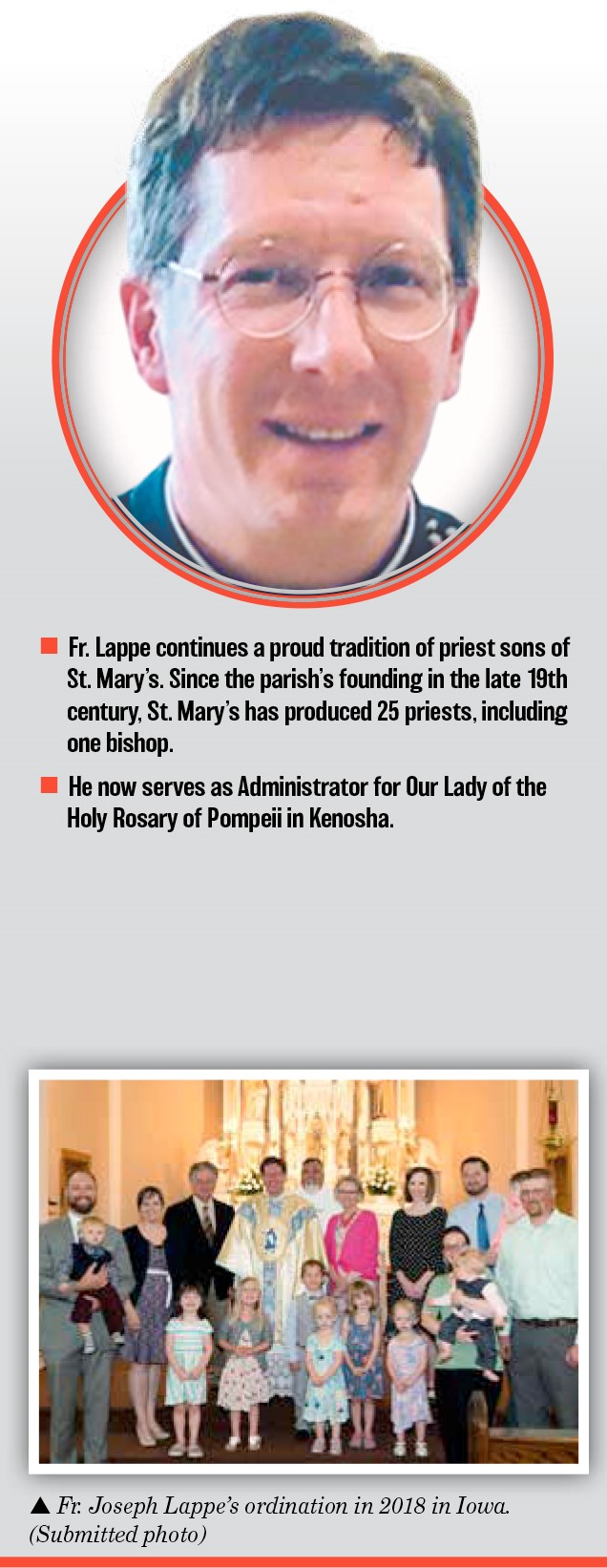Give Us Shepherds
Your home parish has sparked several vocations. What do you think about that environment is so conducive to bringing people to God?
I think a lot of it is faith in God. It sounds like a cultural cliche, but the reality is faith. I find out more stuff on it because I never ask questions. I just kind of go, “OK, this is the way it is.” One of our parishioners at one time, one of the family members had gotten in an accident or something like that. Everybody gets on the prayer lines and told everybody to start praying. They started praying. Their prayers prayed this person back to life. Our parish has been kind of notorious for it. So, you know, it’s love for the Church, but also it’s love for God.
What was it like growing up there?
I was pretty privileged. I assumed everybody had what I had, and that’s not 100 percent true. The church I went to is no more than an intersection with 11 houses. That’s it. It’s all farming communities around that area. And that’s the biggest building in town. From our farm, you can see it from the back of her.
How does the liturgical environment help you in your vocation?
God’s beauty. That’s going to draw more people than anything else. I don’t have to do any work; I let the Holy Spirit take care of that. When the artist uses his talent, it was coming from God. [The Church] is used for sacred liturgies to draw people’s hearts to something greater than themselves.
How does a more examined faith help?
At first, you don’t know the whys. You just did it. Once you got the why, then you start digging, then, “Oh, now this makes a little more sense.” Now, what is the truth? What am I really looking for? What’s authentically Jesus Christ? I’m very fortunate. My grandparents had the Baltimore Catechism, so it doesn’t mean I got all that, but I could pump them for information. And they have been solid — (I’m) very, very lucky that I had very solid parents.
What ultimately brought you to the priesthood?
I’m considered a late vocation. It’s not until you reflect and start realizing maybe God was calling me to this next point. I still remember, probably around fifth grade, going, “Gee, that’s pretty cool.” My grandma really wanted to have a priest in the family. And I thought at one point in high school, I’ll do it for grandma. When they had the vocations talk in CCD, I figured I’ll just be honest, and they’ll reject me. It didn’t matter what it was (for). Well, they thought I had a calling to the priesthood.
But you didn’t get there right away?
So then, after college, I was just doing what I thought was right and what I needed to be doing, and it wasn’t all working out, wasn’t panning out. I couldn’t figure out what God was doing. And during that time, I had a reversion to my faith. I was going to church on Sundays. That wasn’t an issue, but I wasn’t understanding the whys.
How did you get there?
I heard you’re not a priest until you get ordained. The problem is if you don’t answer the call. At least try it. If you think God’s calling you, all of a sudden, this will plague your mind. Should I become a priest? I don’t know. I didn’t want to tell my parents because my mom would tell anybody, and I didn’t want my grandmother to know because if she knew, oh God, this will be all like wildfire. The Holy Spirit worked in me, and I realized, “I need to be doing something. I need to get my butt moving.”
Are there more ways members of the laity can help to foster vocations?
If you see someone’s got qualities for it, tell them to check it out. What’s the worst that could happen? God tells you no. But if he tells you yes, then you’re actually doing what God’s calling you to do. And then you’re doing what you’re supposed to be doing, not what you think you need to be doing.
What would you say to someone who doesn’t think they have what it takes to be a priest?
I’ll say St. Joseph of Cupertino helped me out a whole lot. He was not an educated man. He was not very good in studies, but he got the right questions, the right things he needed at the time. And he became a priest when he didn’t want to become a priest. And, so like, what are the odds? He wanted him to be a priest, and it happened. But he said you don’t have to be the smartest person in the world. You’ve just got to love God and care for him and do that. That’s all he requires.

